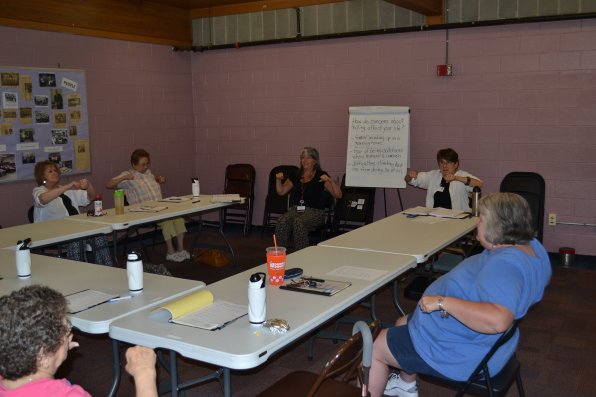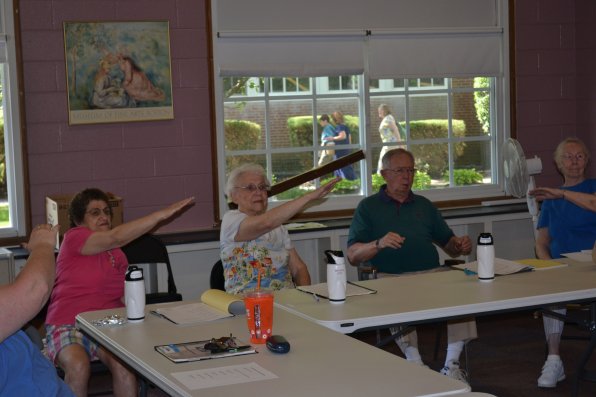About four years ago, the Concord Regional Visiting Nurse Association wanted to know what was important to you.
“Our agency really wanted to learn from our community,” said Keliane Totten, vice president of community health and business development.
So they held a bunch of listening groups in their 39-town coverage area to find out what kinds of programs people were interested in. While the VNA sees patients ranging from birth to end of life, they understand that the age group most in need of services is the older adults. They also wanted to see where would be the most ideal places to hold them.
“We wanted to do more outside Concord, within our service area and closer to our patients’ homes,” Totten said. “We’ve really gotten to know the community.”
Now, if you take a look at the Insider, which we highly recommend, the calendar and bulletin board is usually a good place to see what VNA groups, programs or clinics are taking place that week – and that’s just in Concord. We can tell you for a fact that there are plenty more of them happening all over the VNA’s coverage area as well.
“We try to make it convenient for people to participate in the programs,” Totten said.
They offer three nationally recognized, evidence programs – all free of charge, but requiring registration – that over the course of three years have been quite popular. A Matter of Balance is geared toward the senior population and is centered on reducing the fear of falling, while setting goals for increased activity. It’s held once a week for eight weeks and helps create behavioral changes, come up with a plan and teaches exercises to help with balance. There’s almost always a class going on, as it has become the most attended of the programs unveiled about three years ago.
“This is definitely one where it’s commonly filled,” Totten said. “People are motivated to prevent falls.”
Better Choices, Better Health is for those dealing with chronic diseases, such as diabetes, obesity, heart failure and high blood pressure, and how best to manage their condition. Through nutrition, sleep, exercise and self management skills, over six weeks it teaches participants the best way to live with their illness.
“It really focuses on building a tool box,” Totten said.
For those charged with caring for a loved one, Powerful Tools for Caregivers is a program to check out. Caregivers learn how to reduce stress, problem solve and make challenging decisions.
“It’s really for non-professional caregivers,” Totten said. “So in turn, they can be a better caregiver.”
Communications skills are also a large part of it since caregivers are dealing with doctors, nurses and other family members.
“We probably spend three of our sessions focused on communication skills,” Totten said.
There’s also the Capital Area Memory Cafe, held the third Wednesday of every month, where those with memory impairment can spend time with others who share memory loss, while caregivers can speak with professionals and learn about resources.
Walk-In Wednesday, held the fourth Wednesday of the month, is a chance for people to talk about their end-of-life wishes and review important documents, like an advance directive or living will. And Dying to Talk is where people can discuss matters about living and dying in a cafe-style environment at True Brew in Gibson’s on the fourth Wednesday.
The monthly senior health clinics are held at various locations in Concord, as well as Boscawen, Weare, Pittsfield, Loudon and Hillsboro, to name a few. It’s a place where people can get their blood pressure checked, nutrition counseling, medication education and foot care. There are more than 30 clinics that serve about 550 patients, so appointments are helpful.
“We tend to see the patients every other month, unless it’s for a quick blood pressure check,” Totten said.
The Walk-in Immunization Clinic is held the first Monday and third Tuesday of the month at St. Paul’s Episcopal Church in Concord and serves children and adults who are uninsured or underinsured.
Both the senior health and immunization clinics are done with a $10 donation in mind.
“Some people don’t pay anything for the visit and that’s okay, and others pay more,” Totten said.
They also collaborate with other organizations to help fill gaps in the community and always want to hear from those looking for services.
For more info or to sign up, visit crvna.org.










